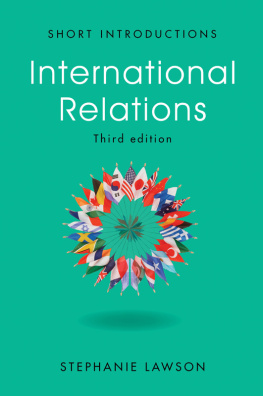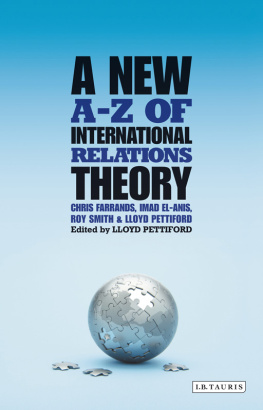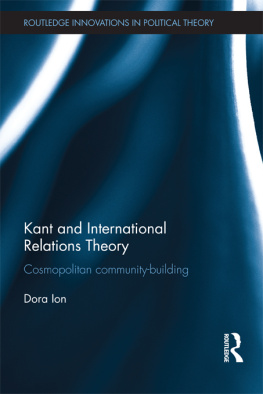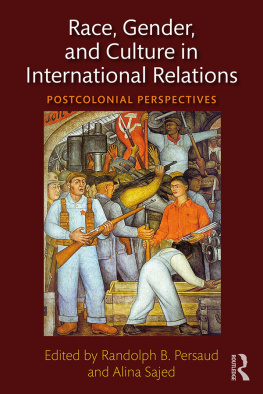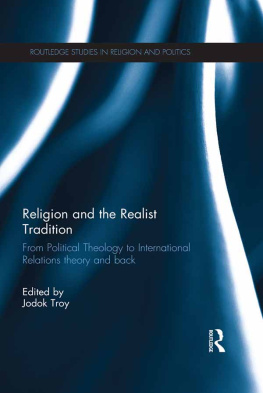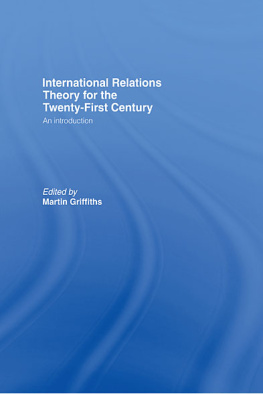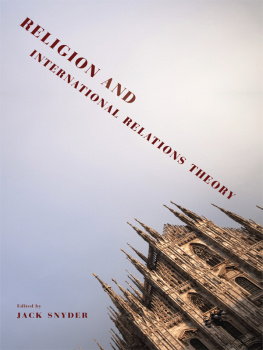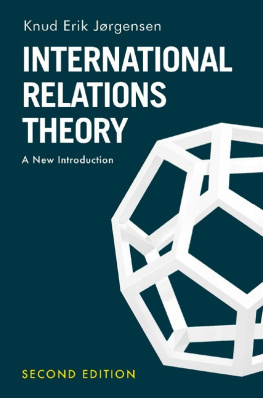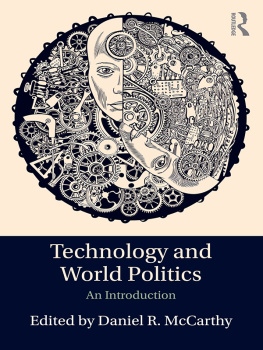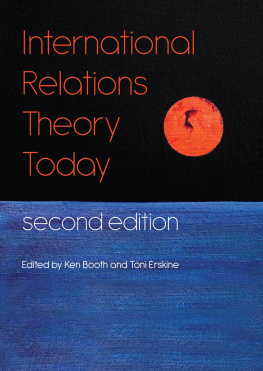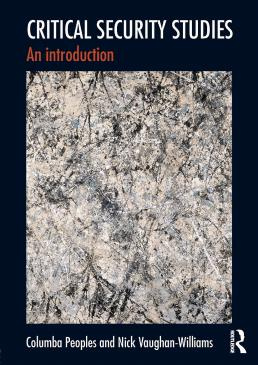Contents
Case Studies
Guide
Print Page Numbers
To Liisa Adele, James Kofi, Thomas Grainger, Annabel Grace and Kaito Maximus
Theories of International Relations
Contending Approaches to World Politics
Stephanie Lawson
polity
Copyright Stephanie Lawson 2015
The right of Stephanie Lawson to be identified as Author of this Work has been asserted in accordance with the UK Copyright, Designs and Patents Act 1988.
First published in 2015 by Polity Press
Polity Press
65 Bridge Street
Cambridge CB2 1UR, UK
Polity Press
350 Main Street
Malden, MA 02148, USA
All rights reserved. Except for the quotation of short passages for the purpose of criticism and review, no part of this publication may be reproduced, stored in a retrieval system, or transmitted, in any form or by any means, electronic, mechanical, photocopying, recording or otherwise, without the prior permission of the publisher.
ISBN-13: 978-0-7456-9512-9
A catalogue record for this book is available from the British Library.
Library of Congress Cataloging-in-Publication Data
Lawson, Stephanie.
Theories of international relations: contending approaches to world politics/Stephanie Lawson.
pages cm
ISBN 978-0-7456-6423-1 (hardback) -- ISBN 0-7456-6423-7 (hardcover) -- ISBN 978-0-7456-6424-8 (paperback) 1. International relations. 2. World politics. I. Title.
JZ1242.L4 2015
327.101--dc23
2014036013
The publisher has used its best endeavours to ensure that the URLs for external websites referred to in this book are correct and active at the time of going to press. However, the publisher has no responsibility for the websites and can make no guarantee that a site will remain live or that the content is or will remain appropriate.
Every effort has been made to trace all copyright holders, but if any have been inadvertently overlooked the publisher will be pleased to include any necessary credits in any subsequent reprint or edition.
For further information on Polity, visit our website: politybooks.com
Preface and Acknowledgements
The discipline of International Relations (IR) was formalized as a field of academic study in the immediate aftermath of the First World War and dedicated to addressing the causes of war and the conditions for peace in a systematic and sustained manner. It has since developed into a highly complex, multifaceted field of intellectual endeavour which, although remaining very much attuned to war and peace at an international level, now addresses a variety of issues under the general rubric of security food and water security, energy and resource security, environmental security, gender security, and so on. Allied to these are concerns with justice and equity at a global or transnational level. These relate in turn to poverty and development, and all have a very clear normative dimension.
The academic study of these issues cannot confine itself to mere description. The task of the IR discipline is also to explain, interpret and analyse the range of events, structures and institutions, as well as the behaviour of agents, both individually and collectively, who drive events, create structures and build institutions. This task requires the conceptualization of the various dimensions of the subject matter war and peace, anarchy and order, power and interests, justice and security, among many others. Beyond this, it requires a theoretical imagination capable of bringing together these various dimensions to tell a coherent story about why the world of international politics is as it is. In addition, most theoretical enterprises have much to say about how the world could and should be like and are therefore explicitly normative.
This book is organized in a fairly straightforward manner, examining the principal schools of thought, beginning with political realism in its classic form and proceeding through to issue-oriented formulations of theory in the contemporary period. This is not the only way to organize a book on IR theory, but for readers coming to the subject for the first time it has the virtue of simplicity. Having said that, readers will soon find that each school of thought is itself complex and that there is contestation within schools as well as between them. At the same time, elements of different schools of thought overlap, and there has been much interaction between them. Indeed, to some extent they feed off each other as they critique, and counter-critique, each others assumptions. Another preliminary point to note is that the book does not champion any particular school of thought, or any variant within a school, but advises the reader to consider the merits and shortcomings of each one and to reflect critically on the contribution that it makes to understanding the complex world of international relations.
Writing a book such as this always incurs debts of various kinds to family, friends and colleagues. I am especially grateful to Jonathan Symons, Noah Bassil and Alan Scott for taking the time to read parts of the manuscript and to provide comments and suggestions. Many thanks are also due to Pascal Porcheron and Louise Knight at Polity Press for their support for the project and, not least, for letting me have my way with the cover illustration. Apart from its aesthetic qualities, readers will, I hope, appreciate the symbolism of Henri Rousseaus Tiger in a Tropical Storm for the theorization of international relations.
SL
Sydney, August 2014
Introduction : Theorizing International Relations
All academic disciplines are dedicated to the task of understanding or explaining some aspect of the world, although they do so in very different ways. And they are all underpinned by bodies of theory formulated in response to particular problems or questions emerging from their particular subject matter. So the study of literature is underpinned by literary theory, sociology by social theory, physics by physical theory, politics by political theory, and so on. The study of international relations (IR), and its theorization, is a species of political studies or political science but has developed its own distinctive profile since it emerged as a specialized field almost a century ago. IR also draws on other disciplines in the humanities and social sciences, especially history, philosophy, law and economics, with social theory having a particular influence in recent years.
As an intellectual enterprise, theory is often contrasted with action or practice, sometimes in a negative sense, as reflected in the rather clichd stock phrase Its all very well in theory but it doesnt work in practice. Actually, if it doesnt work in practice, then it may not be much of a theory (whatever it is) and must therefore be re-examined for errors or abandoned altogether. This suggests that theories stand to be tested in light of practice, or in competition with other theories, and succeed, fail or undergo modification on that basis. Even when theory does fail in some sense, the value of theoretical speculation should never be underestimated. Nor should the abstract be set up in opposition to the real, as if they were completely unrelated. While theorizing is indeed a mental process rather than a physical action or event, it is intimately related to practice. It aims to make sense of actions, events or phenomena in the physical or natural world as well as the social world, of which politics is a significant part. Some go so far as to propose that theories actually create realities. At the very least, thinking generally precedes action and, indeed, we are usually enjoined to think before we act. Whether those thinking processes always result in what we might consider desirable outcomes is another matter.


